Obama speech to focus on drones, Guantanamo prison
Administration officials
tell CNN that Obama will use the National Defense University speech to
continue to call on engagement with Congress on aspects of national
security, more transparency in the use of drones, and a review of
threats facing the United States.
He will make the case
that the al Qaeda terror network has been weakened, but that new dangers
have emerged even as the U.S. winds down operations in Afghanistan
after more than a decade of war triggered by the 9/11 attacks.
Threats that have emerged come from al Qaeda affiliates, localized extremist groups, and homegrown terrorists.
The address will also
build on remarks Obama made in his annual State of the Union address
earlier this year when he said his administration works "tirelessly to
forge a durable legal and policy framework to guide our counterterrorism
efforts."
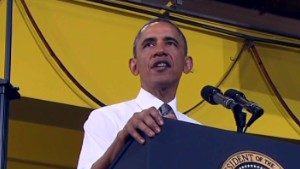 Defending drones in the terror fight
Defending drones in the terror fight
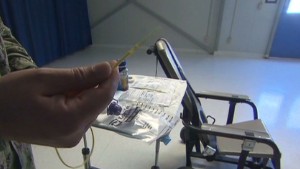 Gitmo prisoners being force-fed
Gitmo prisoners being force-fed
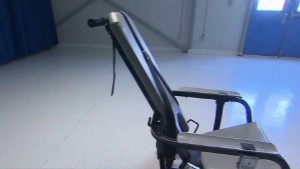 The battle to force feed Gitmo detainees
The battle to force feed Gitmo detainees
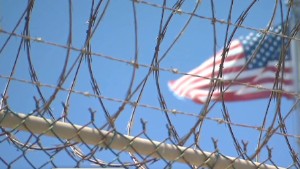 Gitmo detainees cost $900,000 apiece
Gitmo detainees cost $900,000 apiece
It also comes on the
heels of a couple confirmation hearings on Capitol Hill for members of
Obama's national security team where a pitched political battle over the
use of drones was waged.
At John Brennan's
confirmation hearing to be CIA director, Republican Sen. Rand Paul of
Kentucky mounted a 13-hour filibuster demanding the administration
detail whether it would be legal to strike suspected American terrorists
on U.S. soil.
Attorney General Eric Holder responded in a letter to Paul that the president did not have such authority.
In a letter to congressional leaders on Wednesday,
Holder disclosed the administration had deliberately killed Anwar
al-Awlaki, an American citizen and radical Muslim cleric who was said to
be the face of the al Qaeda franchise operating in Yemen.
Holder said he was
actively plotting to attack the United States and so targeting him was
justified legally and from a policy standpoint.
"This disclosure was
also intended to coincide with the speech the president will give
(Thursday) in which he will discuss our broader counter-terrorism
strategy - including the policy and legal rationale for our use of
targeted, lethal force against al Qaeda and its associated forces," a
White House official told CNN.
The letter also
disclosed that three other Americans were killed overseas in
counterterror strikes but that those suspected terror figures were not
deliberately targeted by the United States.
In an interview with CNN
Chief White House Correspondent Jessica Yellin last year, Obama said
the drone issue was a daily "struggle" for him.
"That's something that
you have to struggle with," he said. "Because if you don't, it's very
easy to slip into a situation in which, you end up bending rules,
thinking that the ends always justify the means. That's not been our
tradition. That's not who we are as a country."
The administration is
considering shifting lethal drone operations currently run by the CIA
over to the military "due to a desire for greater transparency in who is
being targeted," a U.S. official told CNN earlier this week.
By law, the military is not able to act in the covert way the CIA can in this particular arena, and must answer to Congress.
In his confirmation
hearing, Brennan expressed a desire to move the agency away from
paramilitary operations, and back to traditional areas of espionage.
"The CIA should not be doing traditional military activities and operations," he said.
The American public is split on where and how drones should be used, according to a March poll by Gallup.
Although 65% of
respondents said drones should be used against suspected terrorists
abroad, only 41% said drones should be used against American citizens
who are suspected terrorists in foreign countries.
This number dips even
further when the use of drones on American soil is considered. Only 25%
of people said drone should be used against suspected terrorists in the
United States. And when that suspected terrorist is an American citizen,
the approval for using drones falls to 13%.
Opinion: 9 myths about drones and Gitmo
Another flashpoint Obama will discuss is the fate of the Guantanamo Bay, Cuba, detention facility.
While he worked to close
it early in his first term, Congress enacted significant restrictions
on the transfer of detainees from the prison that made its closure
impractical.
Earlier this year, the
State Department reassigned the special envoy who had been assigned in
2009 to deal with closing the facility and lowered the post's profile by
assigning the job to the department's legal adviser's office.
"Guantanamo hasn't been a
full time job for a year," one senior administration official told CNN
earlier this year in reference to the congressional restrictions on the
repatriation of detainees who have been cleared for release.
But with more than half
the facility's 166 inmates engaging in various forms of hunger strike,
more than 20 of them being force fed, the failure to close the facility
established in 2001 is a continuing problem for the administration.
There are some 86 inmates at Guantanamo that have been cleared for transfer, 56 of them from Yemen.
At Wednesday's briefing,
Press Secretary Jay Carney said Obama is "considering a range of
options" to reduce the prison's population.
"I would say that one of
the options is reappointing a senior official at the State Department
to renew our focus on repatriating or transferring those detainees,"
Carney said.
The Wall Street Journal
reported on Thursday the Obama administration was ready in the coming
weeks to jump start efforts to close the prison - including lifting the
prohibition on sending detainees to Yemen.
"We're in the process of
working on that now, we're looking at candidates," who could lead the
process of helping close Guantanamo, Attorney General Eric Holder said
at a press conference earlier this month. "The president has indicated
that it's too expensive, that it's a recruitment tool for terrorists, it
has a negative impact on our relationship with our allies, and so we're
going to make a renewed effort to close Guantanamo."
Most Americans still support keeping the prison open at Guantanamo Bay.
Seventy percent of
respondents to a February 2012 ABC/Washington Post poll said they
approve of keeping the facility open for suspected terrorists. Only 24%
said it should be closed.
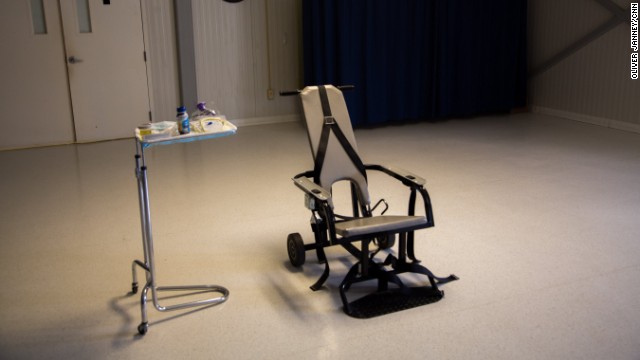 Guantanamo Bay's detention
facility opened in 2002 with 700 detainees. More than a decade later,
166 remain and more than half are in political limbo, waiting for the
Obama administration and Congress to decide whether to close the prison.
The frozen status of the detainees has led to hunger strikes, which
grew from about a half-dozen inmates at first to more than 100 now.
Guantanamo Bay's detention
facility opened in 2002 with 700 detainees. More than a decade later,
166 remain and more than half are in political limbo, waiting for the
Obama administration and Congress to decide whether to close the prison.
The frozen status of the detainees has led to hunger strikes, which
grew from about a half-dozen inmates at first to more than 100 now.
No comments:
Post a Comment